Have you been wanting to get your hands on some Amazing Grass??
Don’t forget to enter my Amazing Grass giveaway! This is the first set of 3 amazing prizes that will be given away the month of July. You won’t believe what the grand prize is, either!
Also, check out the updated recipes over at Green Monster Movement!
For the SGBC today, we have a guest post by Kath from Kath Eats Real Food on the topic of Sports Nutrition! As you may know, Kath is currently training to become a Registered Dietitian to pursue her love of food and health as a career.
Take it away Kath :)
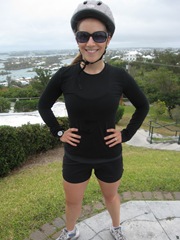 “Sprint To The Fridge”
“Sprint To The Fridge”
By Kath
Eating is supposed to be simple. Exercise is supposed to be fun! But when training for a sporting event or simply wanting to maximize your workout energy, here is some basic information to keep in mind:
Carbohydrates Are Fuel
Foods high in carbohydrate should provide the majority – 55 to 60% – of total calories for energy. Carbohydrate is the primary energy source for muscle function during exercise and helps prevent protein from being used as energy, i.e., it “spares” protein. Complex carbs in the form of whole grains are best before a workout, as they allow a slow release of energy compared to simple sugars like fruits, juices, sugar, syrups, and honey.
Before a workout, aim to have about 15 grams (1 serving) of carbohydrate. But note this: you don’t have to eat a snack if you don’t need one and are exercising for less than 90 minutes. Pre-workout fuel is important for endurance athletes or those working out for long periods of time, but you don’t really need a snack before 45 minutes on the elliptical since your liver and muscles should have plenty of stored glycogen. But if you’re stomach is rumbling – have something to tide you over.
Here are some balanced pre-workout snack ideas high in complex carbohydrates to have a few hours before a workout:
- Whole wheat toast topped with a little peanut butter and half a mashed banana
- A small bowl of cereal topped with berries and milk or yogurt
- OATMEAL! (A smaller portion so you’re not stuffed)
Enduring Endurance
For exercise lasting longer than 90 minutes (or 60 if it’s very intense), consuming 0.7 grams carbohydrate/kg body weight per hour (about 30-60 grams/hour) can extend endurance performance by preventing glycogen depletion. This is when sports drinks, gels with water and sports bars make their necessary appearance.
Protein Picks Up The Pieces
Think of protein as the repair man that comes around after the workout is over. Protein is needed to repair exercise-induced muscle damage and support gains in lean tissue mass. A hotly debated topic in sports nutrition is whether or not athletes need more protein than those who do not exercise. Well, they DO need slightly more. However, they also need more calories to fuel their workouts so while their grams per kilogram of body weight do increase, the percentage of calories that come from protein shouldn’t need to change from around 15-20%.
A post-workout snack is important to replenish the stores you burned through exercise and fuel the rest of your day. I like to plan exercise just before breakfast, lunch or dinner so I can eat a meal right after a workout. There are no strict rules, but you’ll want to include some protein, carbohydrate and fat. Calories are most important here to give you energy to keep going!
Some ideas:
- A turkey and cheese sandwich
- A salad with beans, nuts and veggies
- Tuna salad with whole grain crackers for dipping
- A green smoothie with some protein from yogurt, milk or tofu
- Yogurt with granola, nut butter and fruit
Fuel Up On Fat
Fat provides energy, essential elements of cell membranes, and fat-soluble nutrients such as vitamins A, D and E. Athletes should consume 20-30% of total calories as fat… too high or too low can have negative effects on blood lipid profiles like cholesterol, triglycerides, etc. Fat mobilized from your body’s fat stores is an important source of fuel during certain stages of exercise, and regular training improves your body’s ability to use fat as a fuel source, which is one way to help keep that glycogen level up!
Hydration
Fluids are perhaps the most important “fuel” to consider before a workout. During exercise, water is all you need for events lasting less than 1 hour, but beverages containing carbohydrate and sodium are recommended during exercise lasting longer than 1 hour.
Here are some recommendations for hydration before, during and after:
|
2 hours before event |
2 cups cold fluid |
|
15 minutes before event |
2 cups cold fluid |
|
During event, every 15-20 minutes |
4-6 oz. cold fluid (1/2-3/4 cup) |
|
After event |
2 cups fluid for every pound lost |
Despite the recommendations, the ultimate rule of sports nutrition is do what works for you (while staying hydrated!) The best way to find a pre- or post-workout snack that you like is to try different things and see how you feel. You’ll probably change preferences even depending on the time of day of your workout.
Happy sweating!
Kath
~~~~~~~~
Thanks Kath!
I think the part about fueling up on the right kind of fat is a really great point and one that we don’t hear too often! I know personally for myself, when I started consuming more healthy fats from avocados, nuts, and seeds my energy and overall satiety increased ten-fold. I used to eat the typical ‘fat-free’ diet and wonder why I was always starving and weak during my workouts. I used to be part of the camp that thought that gummy bears were awesome because they were FAT FREE! Well, I still love my candy at times, but I recognize that fat free doesn’t equal healthy. Remember when packages used to emphasize when something was fat free and we’d look at it and think it was GOOD for us? I think times are a-changing…
Now, as long as I know that I am eating healthy fats, I don’t pay much attention to how many ‘grams’ of fat I eat.
I also hope the pendulum is shifting for society’s views on carbs too. I think it is important to realize that our bodies need carbs to function, especially when we are athletes. What? You don’t think you are an athlete? Just try calling yourself one for a few days and see if that improves how you fuel your workouts! ;)
Do you think much about your fat intake and whether you are consuming bad fats or healthy fats? Did you ever used to be scared of eating things higher in fat but now you have a new outlook?




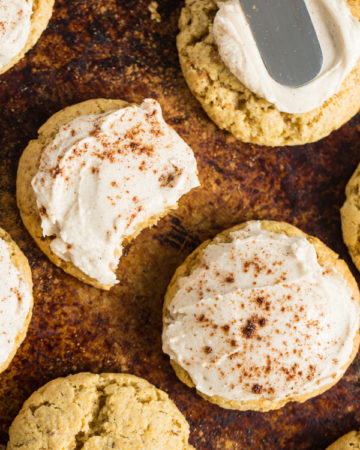
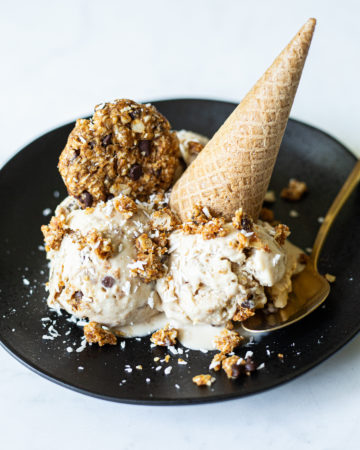
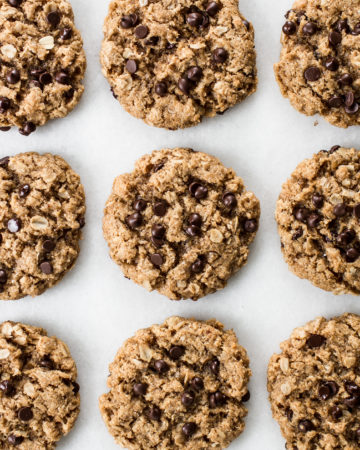
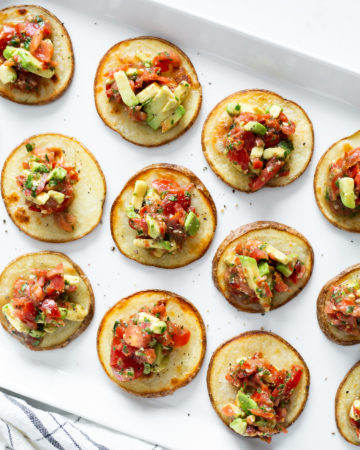
I too, was obsessed with everything fat free for far too long. Oodles of fat free ice cream, fat free bread, chips, granola bars…basically lots of super processed carbs.
I am much happier now that natural nut butters, olive oil, fish oil, and avocados to name a few are part of my weekly diet. I guess I don’t look too closely at how many grams of saturated vs. unsaturated I eat, but I don’t eat much saturated fat in general based on my diet.
Ohh I was a low carb person when that craze hit. It was awful! Always tired, always sore, no energy to workout–miserable!! Of course, in terms of calories, carbs are my weakness, so, I do have to watch my intake because I could pretty much live off bread, which just isn’t smart, but, I do know that I need carbs to give my body energy to power me through those long runs!
Great post by Kath! I’m a very active gal (running and swimming most every day) so this article was great advice for me.
Ugh. I used to be a fat-free fiend. I’d choose a fat-free pudding over a wholesome snack like a Lara Bar (which I now LOVE) or peanut butter and fruit. I’d choose Special K over oats. Craziness! Now I’m a total fat FAN. I love flaxseed, nuts, seeds, almond butter, olive oil, and even salmon! A few years ago I used to hate fish – my how things have changed!
That is such an interesting thing. Now that I am not counting points YEAH! It’s amazing how something with a bit more fat in it actually satisfies me more than if I were to eat five times more food with less fat. Also eating organic things satisfies me more due to flavour. Eurpoeans–Italians/French etc. don’t stear away from fat…and they’re healthy/skinner compartivley then westerns. You simply enjoy the food for it’s flavour in it’s own rightful state and enjoy it. People overeat on high fat food, because they deprive themselves of it so much that they want to binge. Tonight I had a dinner party, cheese, ice cream etc. I would have usually binged the whole night telling myself that tomorrow I’d start again. However, I didn’t even think about binging. I had cheese, ice cream, wine..but limited my intake to enjoy it and not just eat it because it was bad food.
Don’t eat to ‘be good’ eat to feel good.
Eat the fat..enjoy it…
I used to eat fat free but then realized that I NEED fat to lose weight and be healthy!
Tho, I wasn’t sure what percentage I should be aiming for, thanks to kath for telling me what I thought – 20-30% fat is GOOD!
I personally <3 guacamole/avocados and find that it FILLS me up nicely and definately good for satiety :)
I also like nuts and pb too :) yummmmmmmm!!!! I try not to use too much oil in cooking though, esp when watchign weight b/c its not as satisfying or filling and has too many cals!
I noticed that when I started eating MORE, my energy for running and working out really increases. It’s amazing how much better I feel when I’m well fueled. It’s something that I constantly struggle with, but I’m trying :-) Also, I love healthy fats – peanut butter, avocado, crusty bread dipped in olive oil, yum, yum, yum!
I used to always be afraid of fat. Growing up, everything in our house was fat free, low fat, reduced fat. Now, I’ve learned the difference between good fat and bad fat and I don’t mine loading up on the good stuff but I am aware of the higher calorie content in fat so of course, everything in moderation! I love me some avocado, nut butters, salmon, butter, oils, flax, and nuts!
I am actually attempting to increase my fat intake. It is essential for the health of any athlete. I did some research and discovered that at least for runners, low fat intake increases the chance of injury over 50%!!! I was amazed by this fact and knew I should try to get a healthy fat in every meal I eat.
My research into Fat Intake & Runners
Why is it important to eat carbohydrates in order to spare protein? Why not just eat more protein? I eat a fairly low-carb (no grains, beans, potatoes, etc) high-fat (full-fat greek yogurt, grass-fed meats, eggs) diet and have noticed nothing but strength gains since I started eating this way over a year and a half ago. Grains are a fairly new addition to the human diet and are not necessary for good health. I get all the carbs I need from veggies and fruit!
I have definitely realized that fat is an important part of my diet and now consciously eat it everyday. My oatmeal doesn’t feel complete without peanut or almond butter, and I love me some avocados. On sale of course!
Now I realize that eating “fat free” candy or cookies are not only full of preservatives and chemicals, but are sugar in disguise of health food.
Great post!
I eat a ton more fat nowadays in the forms of avocados, nut butters and raw nuts/almonds etc. I have found that satiety is soooo much different for me now and my skin is even improving. I eat probably an avocado a day now where I used to have a quarter of one every couple days. I rarely buy fat free things anymore. Infact, I can’t remember the last time I did!
actually…gummi bears are pretty good pwo because of the glucose. have it with your protein, usually a whey shake, for a fast absorption of muscle growing protein. it’s usually a weight lifter thing. :)
This is an informative post, thanks for having Kath contribute! I was actually listening to Jillian Michael’s podcast a few weeks ago and she said something that surprised me. She said that the healthy fat + carb combo before a workout actually wasn’t the best idea. She suggested fruit because the sugar in it affects your body faster. Do you think that perhaps healthy fat and carbs are good before an endurance workout but if you were doing intervals or something shorter and more intense, perhaps the fruit would be a better choice? Would love your thoughts!
Awesome post! I love Kath’s blog :)
A lot of high-fat foods (avocadoes, olive oil) give me really bad digestive issues, so I can only have them in very small amounts. As a result, I think about my fat intake all the time! I’m worried that I don’t get enough! I try to eat lots of nuts, nut butter and whole eggs to make up for it. But I bet I should probably be eating more.